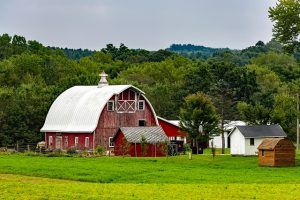Need Immediate help? Call 717-397-1010
After Hours Call / Text 717-471-2168
Need Immediate help? Call 717-397-1010
After Hours Call / Text 717-471-2168

When employees in the state of Pennsylvania are injured on the job, they can rest secure in the knowledge that their medical expenses and time away from work is covered by Workers’ Compensation insurance. But few realize that if they are working for a company owned by either Amish or Mennonite owners, there is a chance that no such insurance coverage has been purchased for them. This is because Pennsylvania’s religious exemption laws permit participation in what is an otherwise mandated form of protection.
The Amish and Mennonite religions specifically bar against insurance. The religious sects make it an employer’s responsibility to pay the expenses for an injured worker on their own. The religions emphasize personal responsibility and, as a result, Amish businesses also don’t have to purchase commercial liability insurance. Ironically when considering companies that do not have to pay workers’ compensation, they are also granted an exception to U.S. Department of Labor workplace safety rules involving the use of hard hats.
The Amish have long argued against having to pay insurance premiums, as they say they will never make a claim because it is against their religious beliefs, which mandate taking care of their own liabilities. They also believe that filing an insurance claim goes against the Biblical principles of trusting in God. Many pay into separate church aid funds, which they are able to tap if they are unable to afford an injured workers’ expenses on their own.
An article published in the Philadelphia Inquirer several years ago highlighted this practice while discussing the disparity of prices charged between Amish businesses and non-Amish businesses. Though owners of the non-Amish businesses blamed the price differential on the Amish not having to purchase workers’ compensation insurance, the paper’s investigation revealed that not all firms take advantage of the religious exemption. Those who do generally set up their businesses as partnerships, with each member named as an owner. This exempts them from having to have workers’ compensation.
The religious exemption for Amish employers that nullifies their requirement to provide workers’ compensation coverage for their employees can create a dilemma for an employee working for the firm who is injured on the job. What are they to do if they are injured and their employer has not purchased insurance to cover their injuries? In instances like these, you need an experienced and knowledgeable workers’ compensation attorney who can work as your advocate. Contact us today to learn how we can help.
 Farming may seem like an idyllic occupation, but the ability to work with agriculture and animals belies the dangers of the job. Agricultural work ranks among the most dangerous, with a very high risk for both fatal and nonfatal injury despite a number of comprehensive safety regulations having been put in place to reduce them.
Farming may seem like an idyllic occupation, but the ability to work with agriculture and animals belies the dangers of the job. Agricultural work ranks among the most dangerous, with a very high risk for both fatal and nonfatal injury despite a number of comprehensive safety regulations having been put in place to reduce them.
Hundreds of farmers and farmworkers die each year from a work-related injury, and every day roughly 100 agricultural workers suffer an injury that results in needing time away from work.
The most common injuries are a result of vehicle accidents and particularly tractor rollovers, but injuries also result from the use of equipment, heat exposure, falls, strains and sprains, exposure to pesticides and more.
The most common injuries to agricultural workers include:
Agricultural workers are entitled to workers’ compensation for injuries suffered on the job. For information about filing a claim, contact our office to set up an appointment.